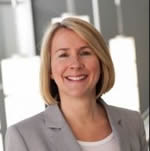Local People Join Experts at NHS Trust AGM
To hear about Imperial College Healthcare's achievements and plans
Local people joined the experts at the annual general meeting of Imperial College Healthcare NHS Trust 2014 on Wednesday 24 September, to hear about the hospitals’ activities and performance during the last year and plans for the future.
The AGM also saw the launch of the hospital’s new annual review.
The NHS Trust says the AGM is a chance to look back at its achievements and challenges over the past year and to answer questions from local people, patients and staff.
There was a presentation on the Trust’s plans for the future from chief executive Dr Tracey Batten, as well as talks from leading doctors on some of the new ways staff care for patients, such as the rapid access clinic for older people and how the Trust is improving cancer services.
Chief executive Dr Tracey Batten said: " This is an important time for the Trust, as we lay foundations to improve patient care now and for the future through our new clinical strategy and plans for a £650 million estate redevelopment.
" As one of the biggest NHS trusts in England, we always have much to report in terms of annual developments, challenges and achievements. The past year is no exception and in addition to this, 2013/14 has also been an extremely important year in terms of preparation for the future."

Dr Tracey Batten added: " Our hospitals play a vital role in the lives of the two million people who live in north west London and many more across the UK and overseas who use our specialist services. We’re proud to have achieved some of the very best clinical outcomes for our patients."
The first presentation Increasing access locally and keeping people healthier looked at the older person’s rapid access clinic which enables frail, elderly patients to have important tests and specialist assessments in one session rather than through various hospital visits.
Patients can also be monitored and treated on a "virtual ward". A case manager co-ordinates nurses, therapists and social workers as well as a dedicated GP and consultant geriatrician to deliver care, where possible, in the community. This allows patients to be at home while being reassured that there is direct access to hospital care whenever needed. One in five virtual ward patients have avoided an unnecessary hospital stay.
Meanwhile, the child health general practice hub enables GPs and patients to get faster, local access to specialist care for a range of conditions, such as diabetes or allergies. Initiatives include direct telephone access to paediatricians for GPs, enabling them, in turn, to provide direct telephone access to patients.
Another presentation looked at organising care around patients' needs. Changes to trauma and cancer services that put patient needs at the heart of patient care pathways have had a real impact on both patient experience and outcomes.
The top-ranking major trauma centre (MTC) at St Mary’s Hospital is treating hundreds of patients a year with multiple, serious injuries, many of whom would not have survived previously or would have been seriously disabled. The centre has structured staffing and care pathways to meet patient needs, ensuring a range of consultant expertise is available immediately 24 hours, seven days a week, and fast access to state-of-the art diagnostics and a specialist theatre. It is one of only four major trauma centres in London, with all of the most seriously injured patients in the area brought to the specialist centre even if another A&E department may be closer.
St Mary’s MTC has an additional two/three survivors per hundred compared to the average survival rate.
The Trust has also improved cancer care pathways in response to patient needs. For example, a "one-stop" diagnostic clinics for prostate, renal, bladder and breast cancer has been established, where instead of attending multiple appointments over a number of weeks at various sites, patients can now have all the scans, tests and consultations they need at one session at Charing Cross.
This includes more evening and weekend appointments for breast cancer to help patients with work or family commitments. For the vast majority of patients, the outcome of the ‘one-stop’ clinic is a clean bill of health. For others, they will know that the next steps are already underway.
You can read the Trust's full annual review here.
October 3, 2014